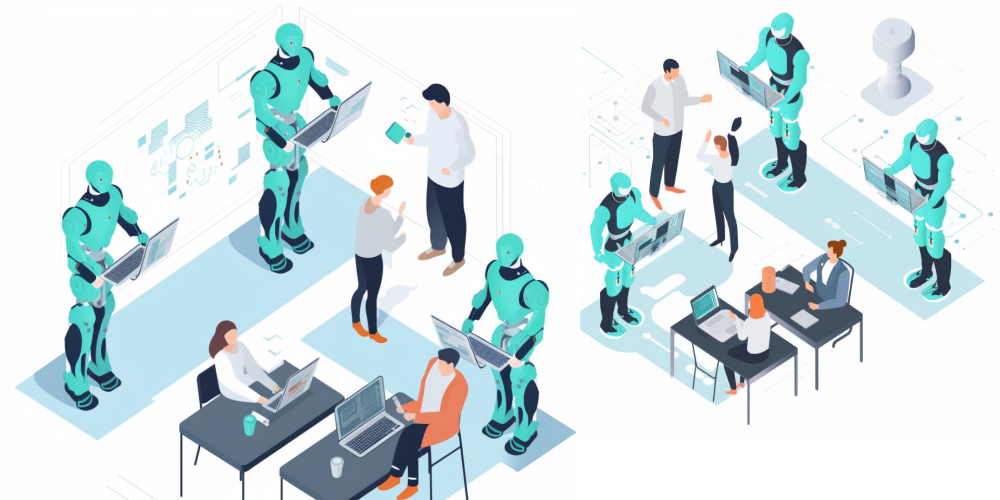

The Future of Business: AI-First Companies
We are in the middle of an AI business revolution. AI is not the future, it is here right now. Just in the past 30 days over 2000 AI tools have been released. This shift will transform the way we do business, and usher in the age of the generative AI-first companies.
As most business executives are contemplating how to super charge their organization by giving their employees AI tools, a small group of new companies take the exact opposite approach to building their organization:
Instead of seeing where in their organization they can slot in AI tools to enhance their human workforce, AI-first companies starts building their organization with autonomous AI agents (like AutoGPT ), then afterwards seeing what humans need to be slotted into the organization to cover any gaps in the AIs capabilities.
For the past 30 days I have personally run an experiment to build just such an AI-first company with the name (suggested of course by an AI) IntelliTees.ai. AI even wrote the entire company strategy. IntelliTees.ai went from idea to profitability in just 21 days!
Such AI-first companies can capitalize on the unique strengths of AI, such as handling large amounts of data, doing analysis, coming up with strategies and automating most tasks. By structuring a company around these strengths, organizations can create more efficient, scalable, and innovative solutions.
There are also more advantages to taking the AI-first approach:
Rapid innovation: AI-first companies can foster a culture of rapid innovation and experimentation, as AI-driven technologies can quickly adapt and learn from new data. This can help companies stay ahead of competitors and respond more quickly to market changes.
Competitive advantage: An AI-first approach can provide a significant competitive advantage, especially in industries that are rapidly being disrupted by technology. Companies that embrace AI from the start are more likely to be agile and adaptive, positioning themselves for long-term success.
Focused core competencies and reduced cost: An AI-first approach allows companies to focus on a few core competencies, while leveraging AI to automate most tasks and augment human decision-making. This enables organizations to optimize their resources and focus on a small set of high-value activities that drive growth. AI-first companies will also a have far lower labor costs.
Future-proofing the business: An AI-first approach helps businesses prepare for a future where AI will play a central role in most industries. By embracing AI from the outset, companies are better positioned to evolve with the rapidly changing technological landscape.
Talent attraction and retention: Since there are fewer humans working in the company than in a traditional business, it is even more important to recruit top talent that can fill the gaps and optimize outcomes. In other words: In a world where every business utilizes many of the same AI tools, the differentiator is human talent.
AI-first companies are seen as forward-thinking and innovative, making them much more attractive to top talent in the industry. Employees who are excited about working with cutting-edge technologies are more likely to join and stay with these types of organizations. These talented individuals can drive further innovation and growth within the company.
Competitive differentiation: An AI-first approach can set a company apart from its competitors, helping to create unique selling propositions and establish competitive advantages in the marketplace.
Taking advantage of global arbitrage in opportunities: AI-first companies are poised to capitalize on previously untapped international potential, which had been overlooked due to language, cultural, or analytical barriers. With the advent of advanced AI tools, these organizations can now harness these global possibilities and thrive in the interconnected marketplace.
In conclusion, the emergence of AI-first companies like IntelliTees.ai demonstrates the incredible potential for AI to revolutionize not only specific tasks but entire organizational structures. By building companies around AI's strengths, these pioneers are paving the way for a new generation of businesses that can adapt and innovate at unprecedented speeds.

